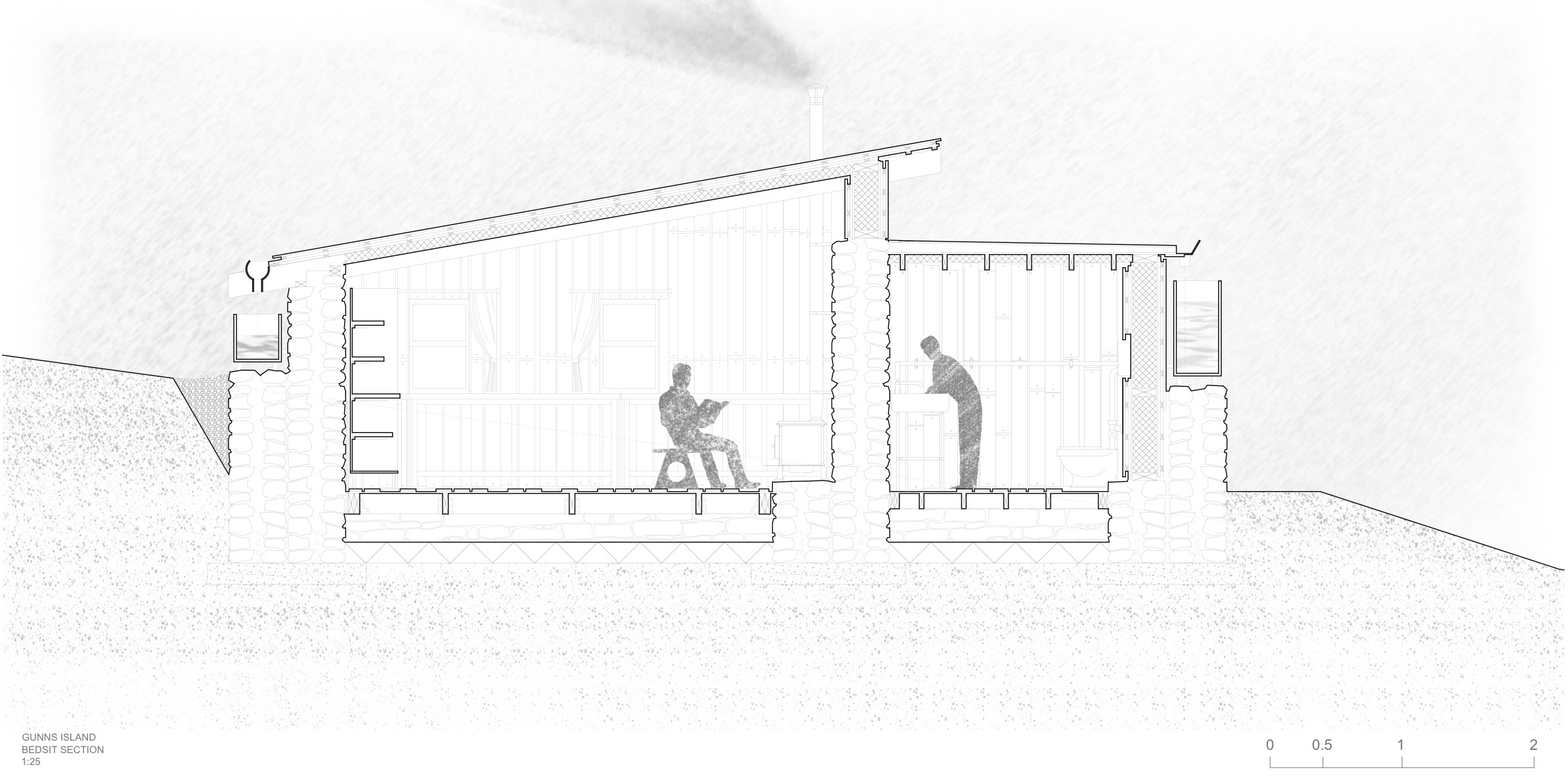This thesis aimed to explore the use of narrative design in the region of Lecale in Co. Down. Off the coast of Ballyhornan lies a tidal piece of land, Guns Island, draped in history and mythology. I used the hermit of Guns Island as a design tool to explore the importance of narrative within architecture.
Using a story to communicate ideas presents a clear and rational method of individual experiences and how we understand our conditions. Framing design proposals as a narrative shows a perspective to clients and the public, as we all understand the importance of storytelling and its value. People may not understand design concepts, but they do understand stories. Rebecca Solnit professed that “Stories are compasses and architecture, we navigate by them, we build our sanctuaries and our prisons out of them, and to be without a story is to be lost in the vastness of a world”. Storytelling adds meaning where design cannot. Though drawings and a finished design show what can be done in the real world, narrative design shows process and progress, giving design structure.
The hermit’s story on Guns Island helped solidify the potential for new users to inhabit the island. The hermit’s philosophy is integral to his character. The folklore of his life on the island gives the island character that needs to be respected.
Through a narrative design lens, we can create suitable accommodation on an island, respecting the history and philosophy of the hermit’s way of living. The narrative helps influence the design’s form, technology and spatial qualities.
The Hermits Retreat
